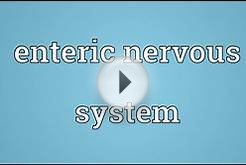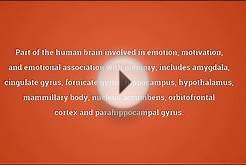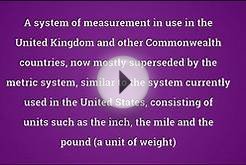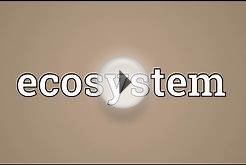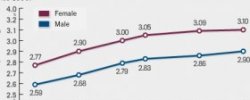 Education is threatened on a global scale by forces of neoliberalism, through high-stakes accountability, privatization and a destructive language of learning. In all respects, a GERM (Global Education Reform Movement) has erupted from international benchmark rankings such as PISA, TIMMS and PIRL, causing inequity, narrowing of the curriculum and teacher deprofessionalization on a truly global scale. At the same time something wonderful is happening in education, albeit on a smaller scale. Worldwide, teachers are slowly reclaiming their profession on every level.
Education is threatened on a global scale by forces of neoliberalism, through high-stakes accountability, privatization and a destructive language of learning. In all respects, a GERM (Global Education Reform Movement) has erupted from international benchmark rankings such as PISA, TIMMS and PIRL, causing inequity, narrowing of the curriculum and teacher deprofessionalization on a truly global scale. At the same time something wonderful is happening in education, albeit on a smaller scale. Worldwide, teachers are slowly reclaiming their profession on every level.
To give voice and meaning to all these separate grassroots initiatives we decided to publish Flip the System. In this book, teachers from around the world and other educational experts such as Andy Hargreaves, Pasi Sahlberg, Ann Lieberman, Stephen Ball, Gert Biesta, Tom Bennett and many more make the case to move away from the uneducational economic approach that has swept the globe, to instead embrace a more humane, more democratic approach to education. This approach is called ‘flipping the system’, a move that places teachers exactly where they need to be – at the steering wheel of educational systems worldwide. It means putting the students first instead of the system. It means really taking responsibility for their education instead of outsourcing it to a standardized test.
And the urgency is there. Both in the North and South. As the UN has articulated in “Rethinking Education” (2015) we need “a humanist vision of education as an essential common good” Education is one of the most powerful forces of transformation and schools and educational systems as a whole need to embody the democratic ideals that we need to face the political, economical and ecological challenges ahead. A humanist vision of education is exactly the opposite of the standardized and even commoditized vision of education that has been so dominant the last decade.
Flip the System has implications for unions as well. If unions are to stay relevant, and a lot of my younger colleagues don’t seem to think they are, unions need to rethink their role and their relationship with their members. In our book Howard Stevenson argues for democratic professionalism. Democratic principles must form the cornerstone of our profession. Meaning that every institution in education, including unions, functions according to those principles. Instead of having a transactional relationship with unions, “what can the union do for..”, teachers must recognize that they are the union (Stevenson, 2016) At the same time unions need to become less institutionalized, centrally organized, embrace grassroots activism and organize themselves according to networked principles. Connect the connected educators.
Graph 1
But rethinking the way unions work is not enough. I would go even further that unions need a renewed confidence about their crucial role in a thriving equitable democratic society. Consider this startling chart on rising inequality and declining union membership in the United States, they seem to be directly linked. This is about more than collective bargaining power for higher wages and arguing for more time for preparation, collaboration and professional development. These are all necessary, but not enough. As the Economic Policy Intitute argues: “The wage effect alone underestimates the union contribution to shared prosperity. Unions at midcentury also exerted considerable political clout, sustaining other political and economic choices (minimum wage, job-based health benefits, Social Security, high marginal tax rates, etc.) that dampened inequality.” It gave workers and the middle class leverage, a powerful voice. One we seem to be lacking in this day and age, as capital becomes more dominant and inequality increases exponentially. As recent elections in Europe and the Greek Euro fiasco have shown we need more than just a narrow economic narrative, we need a new élan, a new vision, a new paradigm. It is about a reframing the conversation on our own terms.
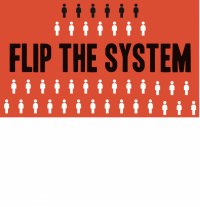 That is what Flip the System is about. Changing education from the ground up is not just literally doing things differently. It means completely deconstructing the current neo-liberal narrative and offering our own compelling story instead. It offers a new way for teachers to talk about education, why we teach, about quality, accountability and about our role within the system. The contributors of Flip the System put these ideas into words, but the whole is bigger than the sum of its parts.
That is what Flip the System is about. Changing education from the ground up is not just literally doing things differently. It means completely deconstructing the current neo-liberal narrative and offering our own compelling story instead. It offers a new way for teachers to talk about education, why we teach, about quality, accountability and about our role within the system. The contributors of Flip the System put these ideas into words, but the whole is bigger than the sum of its parts.
Flip the System is an international follow-up to our Dutch book Het Alternatief (The Alternative). That book has allowed us to construct a more powerful narrative which is slowly gaining ground in the Netherlands. Not in the least because of the instrumental chapters by teachers themselves. We began this endeavor not just to write a book, but to put the ideas into action. To build a campaign around it. Ideas can change the world and teachers can change the system they operate in. But as educational policies have globalized, so must we. It doesn’t matter that there are local differences and of course in many ways the challenges in developing countries are far greater than in the Netherlands. But the impact of privatization offered as a solution can wreak even bigger damage than in the developed world.
We present Flip the System at Education International’s World Congress. It is more than just a book, it is a call to action for teachers, unions, parents and other stakeholders to create your own “Alternative”, write and build your own local narrative which can’t be ignored. And link them up globally so that we can find strength in each others success and examples. I’d like to finish with the motto from the book: “If I am not for myself, who will be for me? But if I am only for myself, who am I? If not now, when?” (Hillel the Elder) I hope you’ll join us and Flip the System.
Join the conversation online with #flipthesystem and #unite4ed

